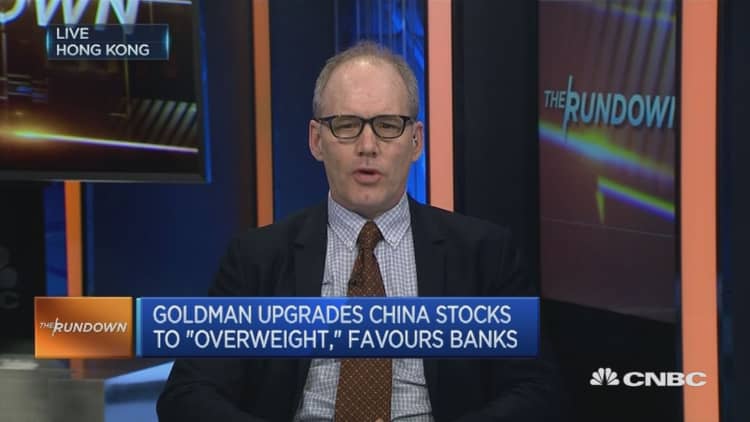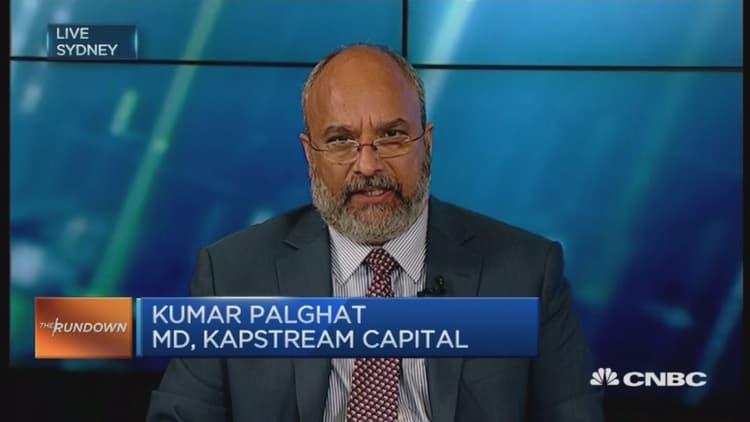The disappearance of 3 billion yuan (US$436 million) from China Minsheng Bank's private banking accounts has once again highlighted Chinese banks' weak internal controls and the risks associated with the sale of so-called "innovative" wealth-management products on the mainland.
An accidental inquiry from an investor exposed the fact that the WMPs sold by a Minsheng branch didn't even exist. When shocked investors rushed to the bank, they found the head of the branch had been taken into police custody and the supposed due payment date had passed.
Investors are still waiting for compensation as well as a detailed explanation from the bank.
More from the South China Morning Post:
China's tightened rules on wealth management products having little effect
China eases yuan outflow control in sign of boosted confidence
Xi is picking his battles, and letting old power brokers be, for now
"If we can't even trust a big national bank, what other financial institutions can we trust?" Liu Min, who bought 12 million yuan worth of WMPs from Minsheng, said as he waited in the lobby of the Hangtianqiao branch of Minsheng Bank to hear news. Two million yuan of the WMP he invested in is was "due" April 17 but he can't get the money back.
Liu, 52, was one of 150 private banking customers of Minsheng who had bought the WMPs. In most cases, their ties with the lender go back 10 years when the Hangtianqiao branch joined them up in a "golf club". Under the programme, they frequently invested in the products offered by the branch and in return, the bank paid for them to go on golfing trips domestically and overseas.

"We have bought the banks products for many years and none of the previous one had trouble," said an investor surnamed Li. "Many other institutions peddle various products to me but I didn't buy them because we trusted the [Minsheng] bank. We are not yield hunters."
Minsheng said on Tuesday it has launched a working group to co-operate with police to investigate the case. Zhang Ying, the head of Minsheng's Hangtianqiao branch, was detained on Friday. The bank said it will try its best to safely secure the funds and assume legal responsibility.
Although defaults of WMPs issued by smaller banks, non-bank financial institutions and online lenders are not uncommon in China, such incidents at big banks – and this case an unapproved WMP – are rare.
The Minsheng case involved an "innovative" WMP in which yields were amplified by purchasing a secondhand WMP. Consecutive interest rate cuts and a flood of WMPs sold on the mainland market over the past three years have already seen wealthy investors shun common WMPs with unattractive yields.

According to investor contracts seen by the South China Morning Post, Minsheng's private banking customers purchased transferred WMPs from the original investors. Bank employees told the buyers that the original investors urgently needed cash and were willing to cash out of the WMPs, which at the time were not yet due, and forego part of the supposed yields. As a result, the original WMPs that guaranteed principle and at least 4.2 per cent annual return "turned into" a product with more than 8 per cent annual return. Bank employees said the products were exclusively for longstanding private banking customers who owned at least 10 million yuan in financial assets.
Last week an investor happened to ask a friend who works at a bigger branch of Minsheng about the WMP at Hangtianqiao, but was told it didn't exist. Officials at the Beijing branch of Minsheng subsequently reported Zhang Ying to the police, who then arrested her. By Thursday night all investors had become aware of the situation.
The 150 members of the so-called "golf club"gathered at the Hangtianqiao branch the next day demanding an explanation. They also visited the China Banking Regulatory Commission and its Beijing subsidiary, as well as the headquarters of Minsheng Bank, and the China Securities Regulatory Commission. However, no clear answers have been given to them to date.
A spokesman for the group told the Post on Tuesday that besides the "golf club", a number of smaller investors got caught in the hoax, so the amount of money involved could exceed 3 billion yuan.
The money was used to cover up a financial black hole left when managers of the branch were unable to recover from a commercial notes scheme. Managers covered up the loss with a 3 billion yuan loan, and they then had to "fill" the loan hole with other sources of funding, according to a media report on Tuesday. Caixin reported that the branch managers converted the commercial notes into banking notes, with higher credit and a lower rate, using fake seals.
The Minsheng case has come at a time when the CBRC has launched a crackdown on banks' transgressions, including bank employees' colluding with clients to forge unapproved lending programmes and sell them to investors.

